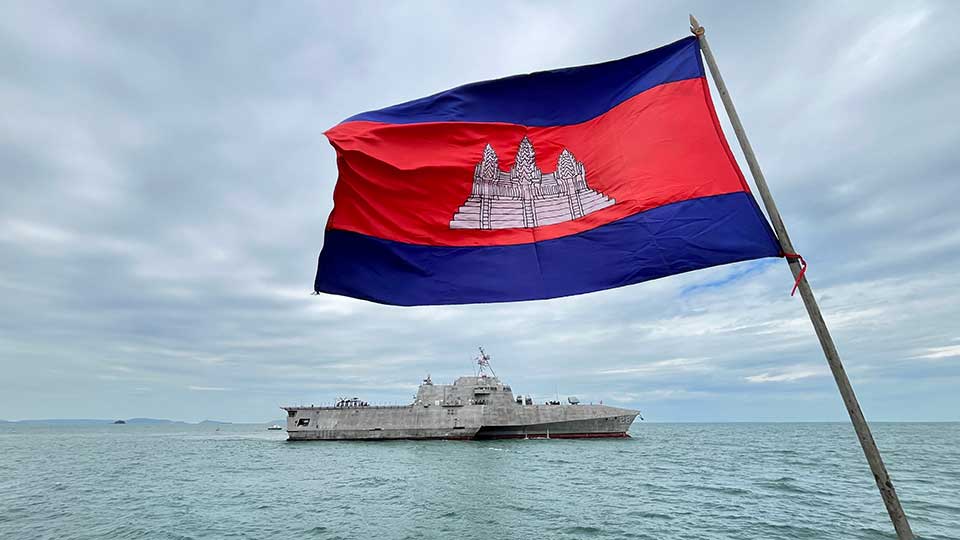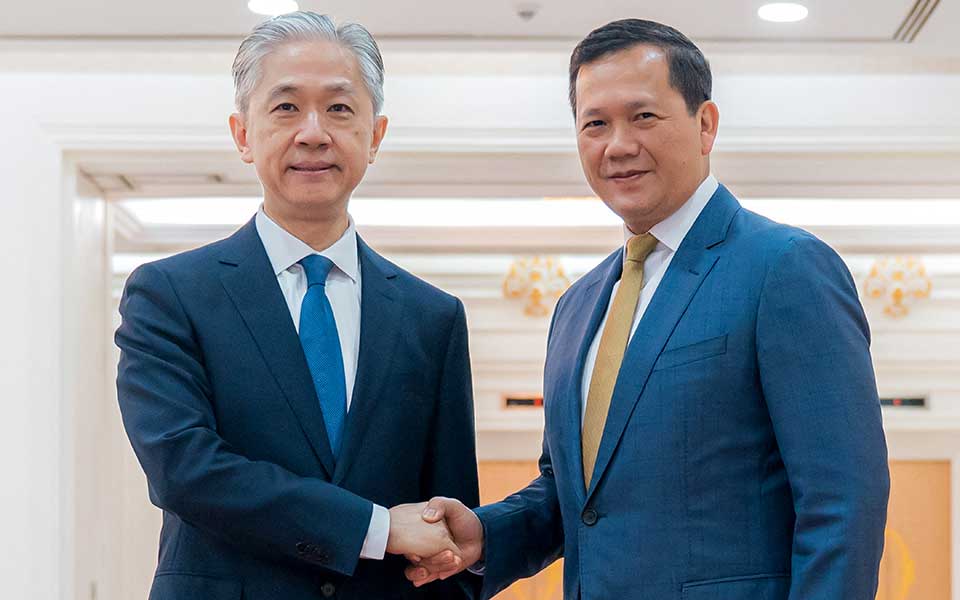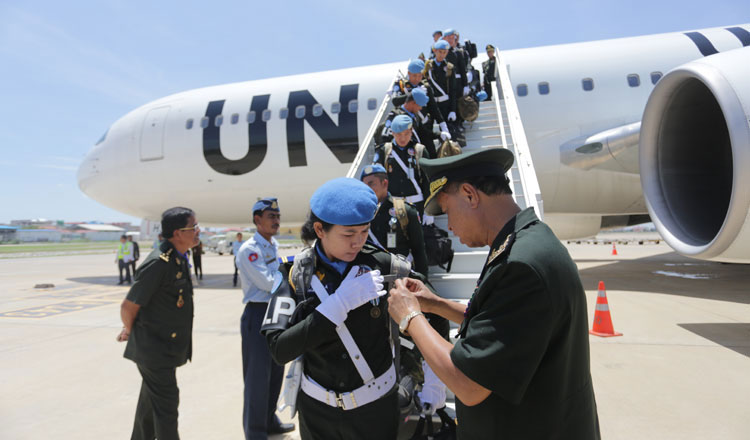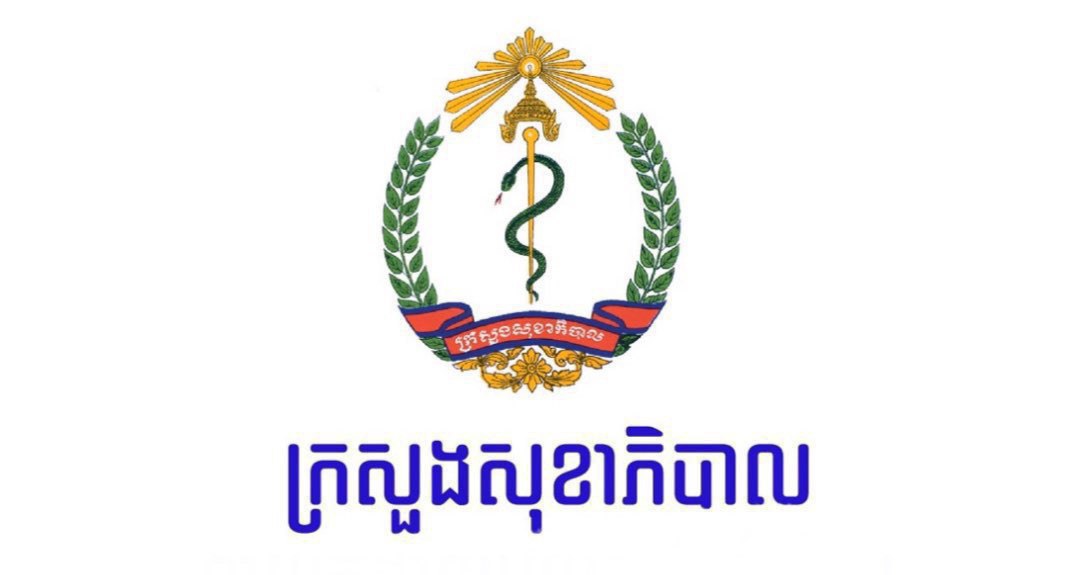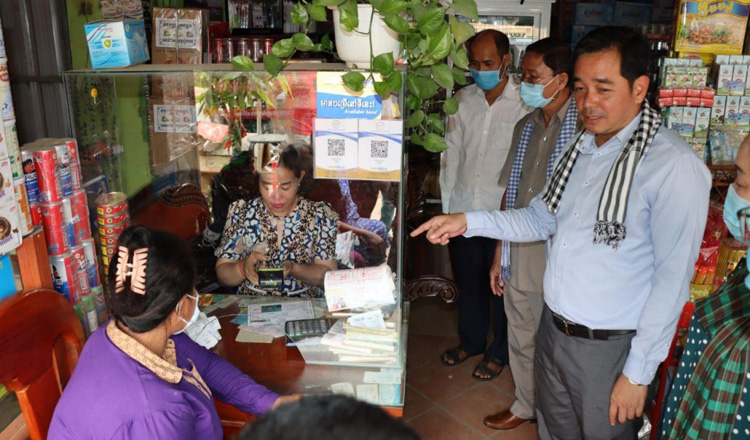Cambodia and China: Is the “Ironclad Friendship” Starting to Rust?
Cambodia and China have maintained a seemingly unshakable alliance for decades, strengthened by infrastructure deals, military support, and unwavering diplomatic backing. Cambodia has reciprocated by supporting China’s regional and global initiatives, such as the Belt and Road Initiative (BRI), earning their relationship the label of an “ironclad friendship.”
Beijing has invested billions in Cambodia’s roads, ports, and airports, while Phnom Penh has staunchly championed China’s global agenda, from the BRI to South China Sea claims. On the surface, this alliance appears solid.
However, beneath the rhetoric, the relationship is less about loyalty and more about strategic leverage. For example, the Lowy Institute reported that China’s financial support for the Ream Naval Base has granted it preferential access to the base, allowing it to gather intelligence on other countries.
Cambodia believes it is too valuable for Beijing to abandon, but shifting regional dynamics raise an important question: Are cracks forming in this once-unquestioned partnership?
The Canal That Says It All
When Cambodian Prime Minister Hun Manet took office, he promised to construct a $1.7 billion waterway connecting Phnom Penh to the deep-sea port in Sihanoukville. Initially, the China Road and Bridge Corporation (CRBC) was set to finance the project under a Build-Operate-Transfer (BOT) model. However, Cambodia later announced that its state-run port company would oversee most of the first phase, with CRBC only playing a secondary role in constructing the second section.
Now, rumors suggest that China might have withdrawn its support for the Funan Techo Canal. If true, this would be significant. While Cambodia has insisted that China remains committed, the Chinese embassy recently dismissed reports of withdrawal as “nonsense” on WeChat. However, Beijing has yet to make an official statement or express rhetorical supportfor the project—even during Hun Sen’s latest visitto China in December, when speculation about China’s hesitancy was rife.
The canal is more than a logistical asset; it is a political statement. For Hun Manet, it symbolizes his leadership. For Cambodia, it represents economic sovereignty. For China, it is a tool of influence. So why the hesitation?
The Attention-Seeking Triangle: China, Cambodia, and Vietnam
One key factor is the geopolitical triangle between Cambodia, China, and Vietnam.
China’s growing influence in Cambodia has raised concerns in Hanoi, which fears that Beijing may leverage its position to advance its geopolitical interests—potentially at Vietnam’s expense. This is not unprecedented. In 2012 and 2016, Cambodia blocked ASEAN resolutionsreferencing the International Court’s ruling against China’s South China Sea claims. Similarly, the Ream Naval Base remains a contentious issue for Vietnam, with suspicions that Cambodia might grant China exclusive rights for intelligence-gathering operations.
Rear Admiral Mey Dina, commander of the Ream Naval Base, acknowledged Vietnam’s skepticismtoward China’s involvement in the base’s construction. Following its development, Vietnam established a Permanent Maritime Unit in Kien Giang province, near Cambodia’s Kampot province, in June 2021. This unit, tasked with patrolling and intelligence gathering, underscores Vietnam’s concerns over China’s growing influence in the Gulf of Thailand.
China’s past support has distanced Cambodia from Vietnam, but the Funan Techo Canal has further complicated Cambodia-Vietnam relations. Hanoi has repeatedly requested information on the project, with Vietnam’s Ministry of Foreign Affairs emphasizing that it is “highly interested” in its development.
At the same time, China is wary of provoking Vietnam. While Beijing prioritizes its relationship with Hanoi, it also recognizes Vietnam’s strategic engagement with the U.S. through initiatives like the Free and Open Indo-Pacific strategy, the Quadrilateral Security Dialogue, and AUKUS—all of which are designed to counterbalance China’s regional dominance.
During a recent visit to Beijing, Vietnamese Communist Party General Secretary To Lam secured 14 agreements on cross-border tradeand rail links, reaffirming China as Vietnam’s “top priority” in foreign policy. Both sides pledged to resolve South China Sea disputes through “friendly consultation,” signaling a diplomatic effort to maintain stability.
From Vietnam’s perspective, the Funan Techo Canal raises environmental concerns, particularly its potential impact on the Mekong Delta, which produces over 50% of the country’s rice. Vietnamese researchers have labeled the project a “continental threat” that could harm Vietnam’s economic growth. Geopolitically, the canal may also reduce Vietnam’s influence over Cambodia.
If China openly supports the canal, it risks destabilizing its relationship with Vietnam at a time when Beijing seeks regional stability. Would China jeopardize its ties with Hanoi for a single Cambodian infrastructure project? Maybe not.
Cambodia’s Expanding Diplomatic Playbook
Another key factor is Hun Manet’s shift in foreign policy. Unlike his father, Hun Sen—who kept Cambodia firmly aligned with China—Hun Manet is diversifying relations with other powers, including the U.S., Japan, South Korea, and Western nations. This approach, while welcomed domestically, has raised concerns in Beijing.
Cambodia has been taking notable steps to strengthen ties beyond China. In 2024, the USS Savannah made a port call in Sihanoukville, just 30 kilometers from the Ream Naval Base—a move seen as a sign of improving U.S.-Cambodia relations. In the same month, Cambodia’s Senate President Hun Sen announced that Japan’s Self-Defense Forces (JSDF) would be allowed to visit the Ream Naval Base.
During Hun Manet’s May 2024 visit to South Korea, Cambodia, and South Korea discussed joint military drills and potential naval port calls. These engagements suggest that Cambodia is actively seeking to counterbalance Chinese influence.
This raises a troubling question for Beijing: Is Cambodia subtly pulling away? Phnom Penh has long been a crucial partner for China in Southeast Asia. However, as Cambodia expands its diplomatic and military partnerships beyond Beijing’s orbit, its once-unshakable “ironclad friendship” with China is beginning to resemble a delicate balancing act.
Hun Manet’s foreign policy approach aligns with his earlier remarks that Cambodia must avoid dependence on any single country. China’s uncertainty over the canal project may push Cambodia even further from Beijing.
Scams, Crime, and the Dark Side of the China-Cambodia Boom
Another issue straining relations is the rise of scam syndicates. Chinese nationals have been primary victims of online fraud, human trafficking, and illicit casino operations in Cambodia. At one point in 2022, reports estimated that 100,000 people were being held in scam compounds.
In August 2023, Singaporean authorities arrested nine Chinese nationals who had obtained Cambodian citizenship on charges of money laundering and fraud.
China has struggled to combat these criminal networks, leading to a sharp public response. In 2023, a state-backed Chinese film, No More Bets, depicted the horrors of scam operations in Southeast Asia—particularly Cambodia. The Cambodian government banned the film, calling it damaging to the country’s reputation, but it became a major box-office hit in China.
Despite China’s concerns, the scam industry is thriving, generating an estimated $12.5 billion annually—nearly half of Cambodia’s GDP, according to the United States Institute of Peace.
Recognizing the growing problem, Chinese Foreign Minister Wang Yi has urged Southeast Asian governments to crack down on these operations. In January 2025, China and Thailand agreed to establish a coordination center to combat scam compounds along the borders of Thailand, Cambodia, Myanmar, and Laos. This signals China’s intent to address the issue seriously.
Is This the Beginning of the Downturn?
China and Cambodia still need each other. Beijing remains Cambodia’s top investor, and Phnom Penh remains a strategic ally for China’s South China Sea ambitions and regional diplomacy. However, emerging fault lines cannot be ignored.
Vietnam’s deepening engagement with China could prompt Beijing to reassess its Cambodia policy to avoid alienating Hanoi. At the same time, Hun Manet’s diplomatic balancing act is testing Beijing’s patience. Meanwhile, China’s frustration with Cambodia’s inability to control scam networks adds another layer of strain.
None of these challenges are dealbreakers—yet. But if current trends persist, the so-called “ironclad friendship” may soon require serious repairs.
Rim Sokvy is a research fellow at the Cambodian Center for Regional Studies (CCRS) and he is currently a GKS Scholarship awardee at Yonsei University in South Korea. His research interest focuses on Cambodia’s foreign policy.
Source : The China Global south project 